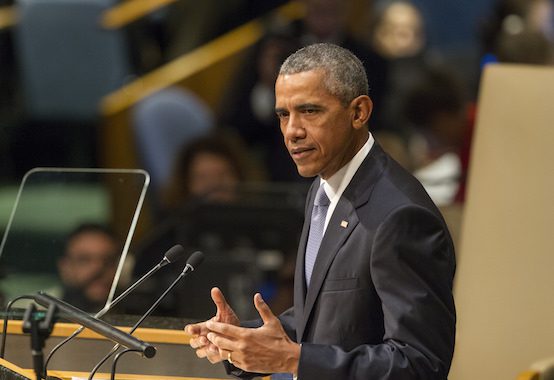The North Korea Blame Game

North Korea’s very questionable claim of testing a hydrogen bomb started the usual blame game here at home:
“If this test is confirmed, it will be just the latest example of the failed Obama-Clinton foreign policy,” Florida Senator Marco Rubio said in a statement. “Our enemies around the world are taking advantage of Obama’s weakness. We need new leadership that will stand up to people like Kim Jong-un and ensure our country has the capabilities necessary to keep America safe.”
Former Florida Governor Jeb Bush said on Twitter that North Korea’s move shows the danger of continuing the “feckless Obama/Clinton foreign policy.”
All of the sniping in response to the test is as predictable as it is useless. North Korea withdrew from the NPT and conducted its first nuclear test in Bush’s second term, and every test since then has just added to the nonproliferation failure that took place almost a decade ago. Needless to say, the candidates complaining about this test and Obama’s “failure” to prevent it have no answer for how they would handle North Korea more effectively. The Republican candidates see it as an easy opening to carp about the nuclear deal (which, it should be said, makes an Iranian version of this story much less likely for decades to come) and a chance to associate Clinton with an undesirable event overseas, and there is no reason to think any of them knows how to dissuade North Korea from carrying out another test in the next president’s term.
The good news in all of this is that North Korea is likely exaggerating its capabilities. Joe Cirincione explains:
The good news is that whatever their intentions, they do not appear to have succeeded with the test. Contrary to the global headlines generated by their announcement, North Korea does not have an hydrogen bomb. Nor does it appear that they have significantly advanced their abilities since their last test in 2013.
Early indications are that the test had a yield of about 6 kilotons, or the explosive force of 6,000 tons of TNT. That is a smaller yield than North Korea’s last test. Even a failed H-bomb test would have resulted in an explosion of 10 to 50 kilotons.
That’s not much to cheer about, but it puts this latest test its proper perspective.
The proposal that most of the candidates have endorsed in one form or another is to resort to more sanctions and isolation, as if these measures haven’t already been tried and found ineffective. Rubio’s proposal included a number of things, none of which would have the slightest constructive effect on North Korean behavior:
Rubio, speaking in Iowa, said he would return North Korea to a list of state sponsors of terror, add sanctions against officials with significant overseas assets, bolster Asia-Pacific military alliances and invest in a “comprehensive missile defense system for the entire continental United States.”
So he would label North Korea as a terrorist sponsor when there is no recent evidence to justify doing this (which is one reason why the Bush administration took them off the list years ago), he would throw money away on a missile defense boondoggle, and apply some punitive sanctions while presumably doing more to subsidize the defense of wealthy allies. These are questionable moves on their own, and they would almost certainly produce the opposite reaction from the one desired from North Korea. Punitive and confrontational measures may be satisfying and may play well with primary voters, but they have a poor track record of eliciting cooperation or better behavior from pariah regimes.
Comments